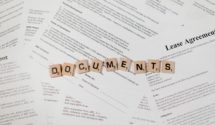Minnesota Renter Rights Overview
Our new post from the series of articles dedicated to the landlord-tenant law uncovers the basics of the Minnesota laws that regulate the relationships of local tenants and landlords.
We’ve prepared a comprehensive review of everything you should know before renting a place in Minnesota. Our renter’s guide to renter laws will help you figure out how to defend your basic rights as a local tenant.
Contents
Rental Application
Application fee: no more than the cost of screening services
Rental agreement required: oral or written
While applying for the rental in Minnesota, you will be requested to pay the application fee (which is the same as the tenant screening fee). Your landlord has to provide you with the contact details of the screening company he’ll use.
This is required so that you could check the real price of the screening and be able to see if they request a reasonable fee.
If the tenant screening fee is lower than the application fee you’ve paid, the landlord is obligated to make a refund for the difference.
Please note that Minnesota landlords are not allowed to charge screening fees if there is no unit available in the building for the lease.
The rental agreement can be written or oral; there are no restrictions regarding it in Minnesota. However, we always advise you to eSign the written lease agreement, so that you did not have any problems in court if you have to file a lawsuit against your landlord. It is always easier to work with the written agreement rather than with the oral one.
Security Deposit
Pet deposit maximum: not indicated
Security deposit maximum: not indicated
Return deposit deadline: 21 days
Security deposit interest: yes, 1% a year
Legal reasons to keep security deposit: unpaid rent, damage claims, lease breaches
Minnesota laws do not indicate the maximum amount of either the security or pet deposit. However, there are several things to keep in mind while dealing with these payments.
First of all, landlords are obligated to keep your security deposit in the interest-bearing account. The interest cannot be lower than 1% a year.
If you hand over your deposit in cash, your landlord is obligated to provide you with the receipt, so that you could have proof of them receiving it. If you give the deposit in person, your landlord must provide you with the receipt immediately, and in another case, they have three days to send you the receipt.
Within 21 days after your lease ends, the landlord must refund the security deposit (minus the damage costs if there are any).
The landlord has a right to cover the unpaid rent with your security deposit. If you cause any damage or your rental has excessive wear and tear, this will also be deducted from your deposit. And, finally, any lease breaches can be covered by the security deposit as well.
Security and Comfort
Smoke alarms: required
Rekey requirements: not indicated
Notice before entry: the effort of reasonable notice is required
Entry while the tenant is absent: possible in several cases
The installation of smoke alarms in rentals is required in Minnesota state. Your rental must be equipped with smoke alarms that should be installed 10 feet from each sleeping area and bedroom.
Please note that smoke alarms must be plugged directly into the electrical outlet. Battery-powered smoke alarms are not permitted.
Minnesota tenants are covered by a few fundamental laws to provide their privacy.
First of all, your landlord can only enter the premises of the rental occupied by a tenant with a reasonable business purpose. They are required to make an effort of notifying you first. In case of violating your privacy and entering your rental without notice, you may take this case to court and get up to $100 reimbursement.
The examples of reasonable business purposes are covered on pages 12 and 13 of the Tenant-Landlord Handbook of Minnesota.
The landlord can visit your rental without notice in the following situations:
– When this is necessary to prevent damage to the property
– When this is necessary to ensure the tenant’s safety
– When this is necessary in order to comply with the local ordinance
Rental Payments
Maximum rent: not indicated
Late fees: a reasonable amount
Rent increase: written notice required (rental period + 1 day)
Right to withhold rent for failure to provide essential services (water, heat, etc.): allowed
Tenant’s right to repair and deduct rent: allowed
Tenant-landlord laws in Minnesota do not indicate the maximum rent amount that can be charged by the landlord. Minnesota doesn’t have rent control as of today.
The tenant is obligated to pay his rent on the due date. The due date should be stated in the lease agreement to avoid misunderstandings.
Rent can be increased during the periodic tenancy only after the written notice. It should be provided within one rental period plus one day.
If you do not pay your rent on time, your landlord can charge late fees. However, the fees should be reasonable and will not be equal to a penalty. This reasonable fee must compensate for the resulting damages after a late payment.
The tenant is allowed to withhold rent for necessary repairs if the landlord ignores your maintenance requests. Other options to deal with the problem include filing a complaint, placing your rent payment in escrow with the court, or suing the landlord in your district court.
Lease Terminations
Notice to terminate lease: not required
Eviction notice for not paying rent: 14-days notice (month-to-month lease)
Eviction notice for lease violation: not required
If the tenant doesn’t pay rent under the month-to-month lease, the landlord cannot start the eviction process without giving the 14-days notice.
However, according to Minnesota state laws, the landlord can file for eviction in court without giving any notice in case of a lease violation.
Disclaimer: Although we have relied on Official State Statutes and other credible sources to find and analyze information for this post, you’re advised to use it as a starting point only, and do not consider this article a substitute for legal advice. Some situations are unique, and it is always better to consult with a qualified lawyer or appropriate government agencies.






Write Your Comment